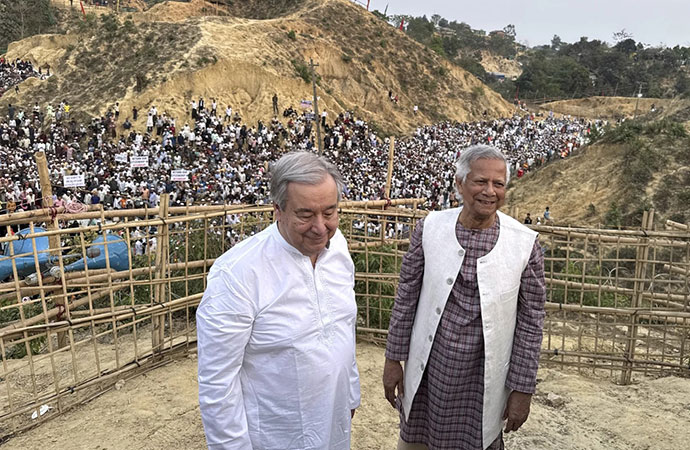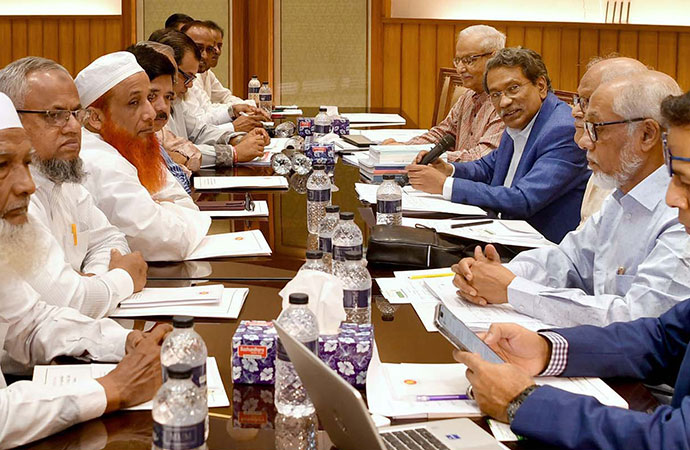Featured 1

The violent outburst we are witnessing between two nuclear-armed neighbours in South Asia - India and Pakistan - is exactly the kind of international emergency that would once have prompted a full-on US diplomatic drive to cool tempers and head off a wider war.
But this latest fighting over and beyond Kashmir, the disputed Muslim-majority region that both countries claim in full, may become a test of the Trump administration's aspirations for global leadership - and for the world without American leadership.
President Donald Trump on Tuesday offered a passive initial response to the fighting, set off by a terror attack on Indian tourists that New Delhi blames on Pakistan-backed militants. "It's a shame," Trump said. "I just hope it ends quickly." The next day, he went a little further, offering his good offices without showing much enthusiasm for becoming involved: "I get along with both, I know both very well, and I want to see them work it out," Trump said. Secretary of State Marco Rubio has been in touch with top officials from India and Pakistan. But there's no indication so far of a broadening US effort to coordinate international mediation or crisis management.
That leaves the two countries several steps up an escalatory ladder that appears more and more slippery as the days go by. India's "response" this week, so to speak, was to bomb at least six Pakistani cities, followed by drone attacks on several more. This came without presenting any evidence at all of the attackers in Kashmir having come from Pakistan, even though they have a past record of it.
The Indian response has led one senior Pakistani official to rail that their bigger neighbours had "lost the plot." The US response will be closely watched in the coming days because the second Trump administration has thrown away the US foreign policy playbook, leaving a vacuum where US multinational leadership once operated. Even more than "America First", this time the slogan seems to be "America Alone".
While Trump has made peacemaking a cornerstone of his new term, his efforts in defusing global hotspots as wars rage in Ukraine and Gaza have shown little progress. Meanwhile, his claim that Houthi rebels in Yemen have pledged to stop attacks on international shipping following US airstrikes has yet to be verified.
But the world needs America to lead, and no situation could possibly demonstrate its stature as 'The Indispensable Nation", as President Obama once said, like the current situation in South Asia. Its great partner in such situations throughout the 20th century was Britain. But while British parliamentarians have voiced concerns in both Houses this week, the government itself has been reduced to repeating platitudes.
Historically, Washington has reasoned that preventing the Kashmir conflict from becoming worse is worth the investment of US power. This was the case even during the first Trump administration, when then-Secretary of State Mike Pompeo stepped in to defuse a confrontation between the South Asian rivals over Kashmir in 2019. Why must this time be different? The future of an entire region of 1.7 billion people lies at stake.

























Leave a Comment
Recent Posts
Auspicious beginnings, but a l ...
The newly elected government of Bangladesh is now in office, and the e ...
Caught between tigers and pira ...
Over 10,000 fishermen in the Sundarbans have suspended their fishing a ...
Historic Chawk Bazar comes alive with iftar items on ..
Shaping Young Conservationists: School Conservation ..
Iran has said it has reached an understanding with t ..
New Finance Minister Amir Khosru Mahmud Chowdhury